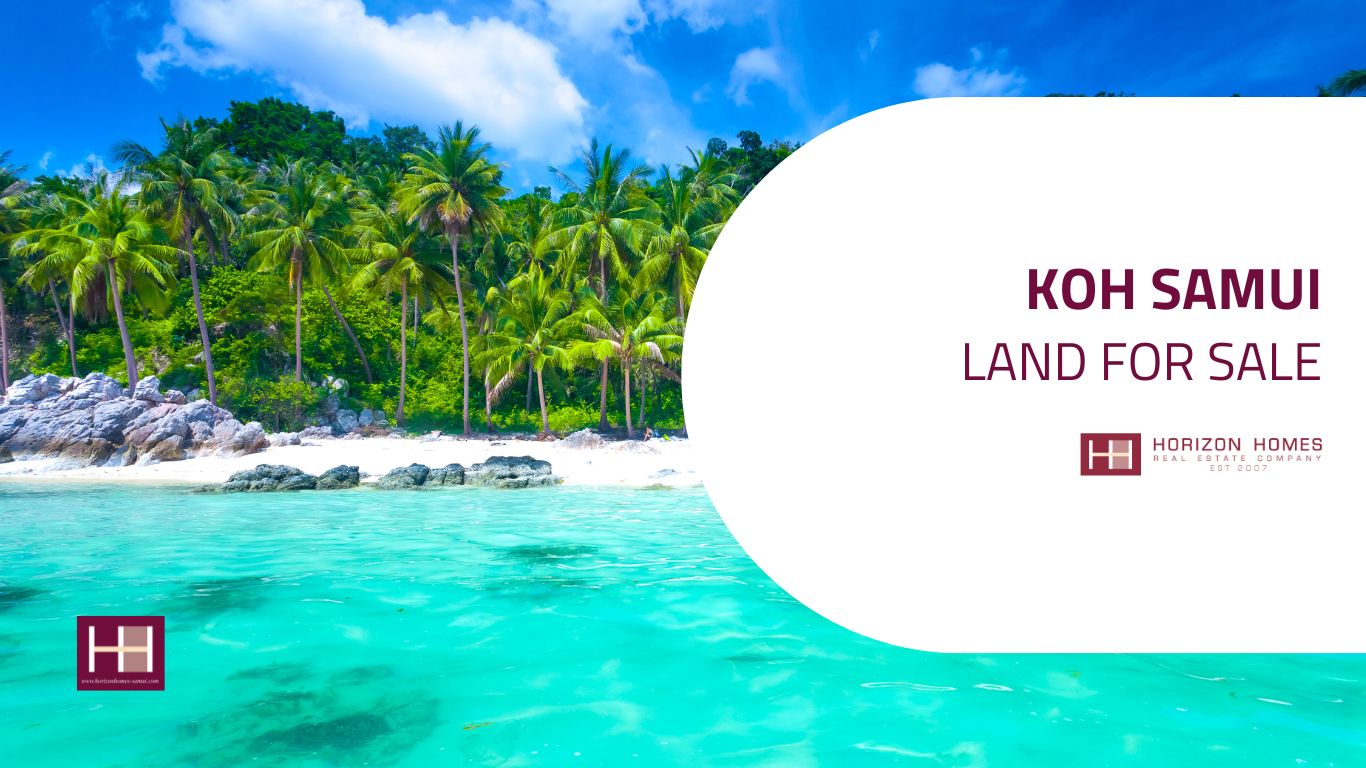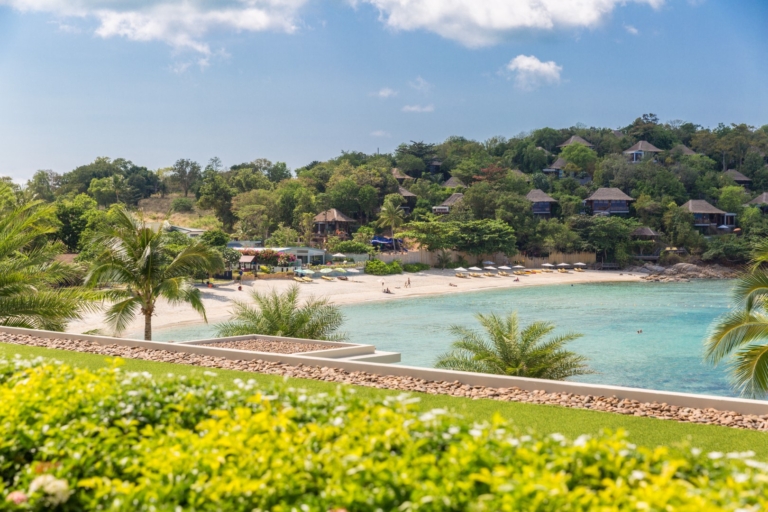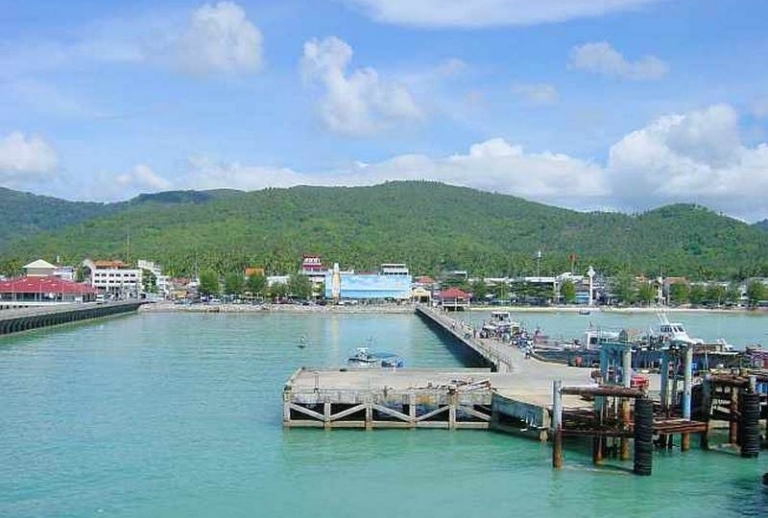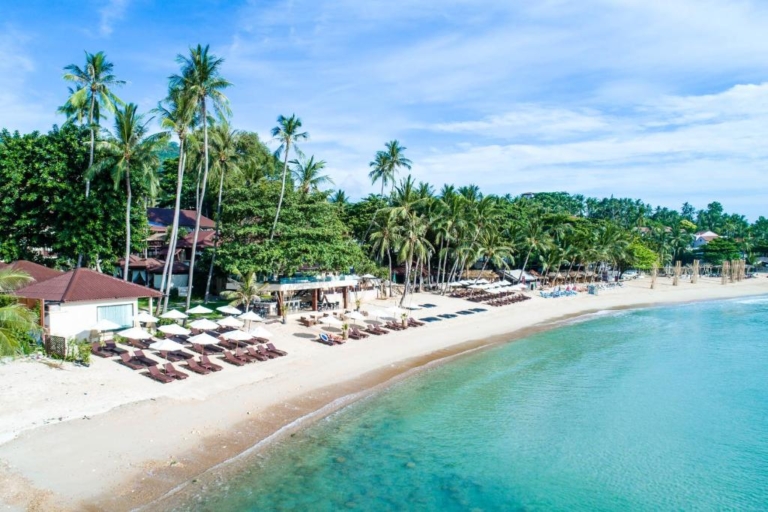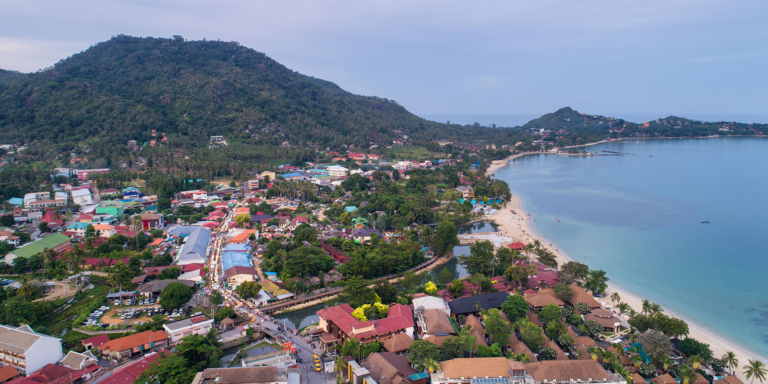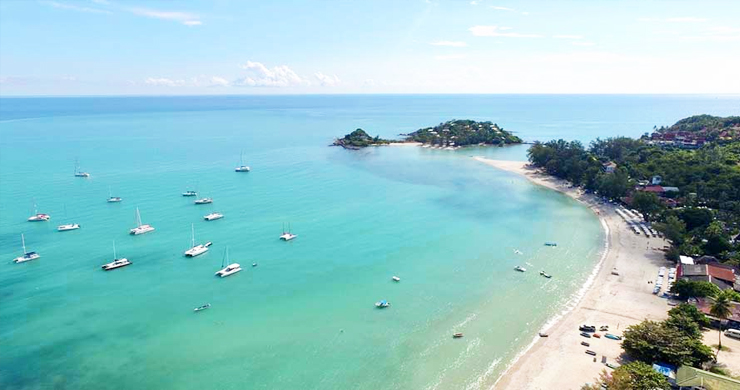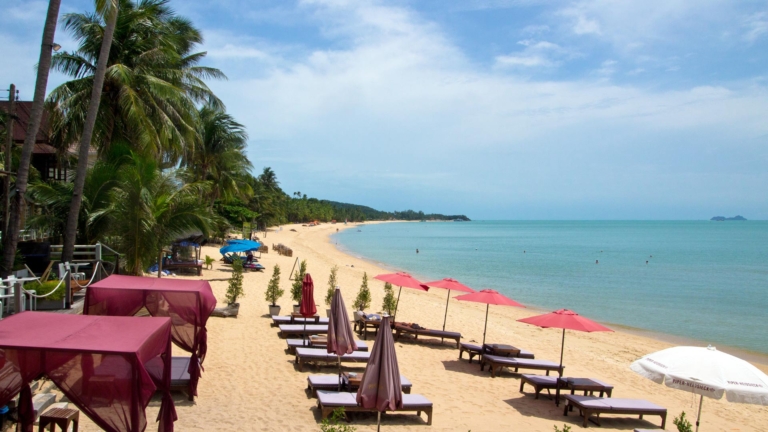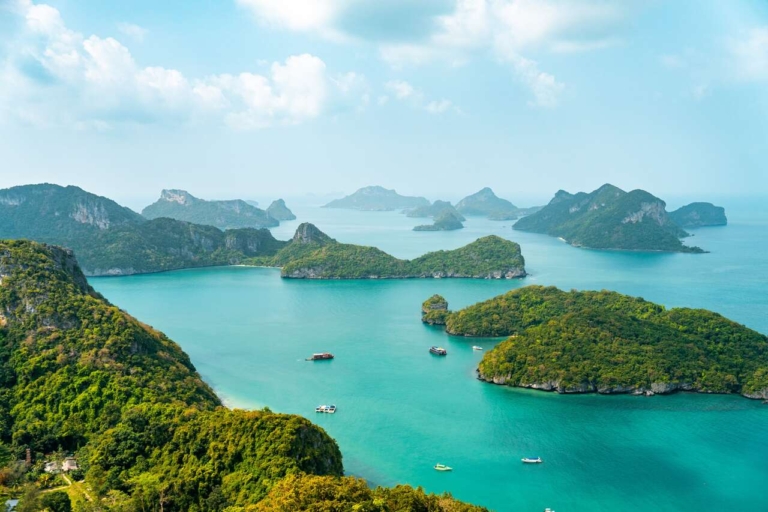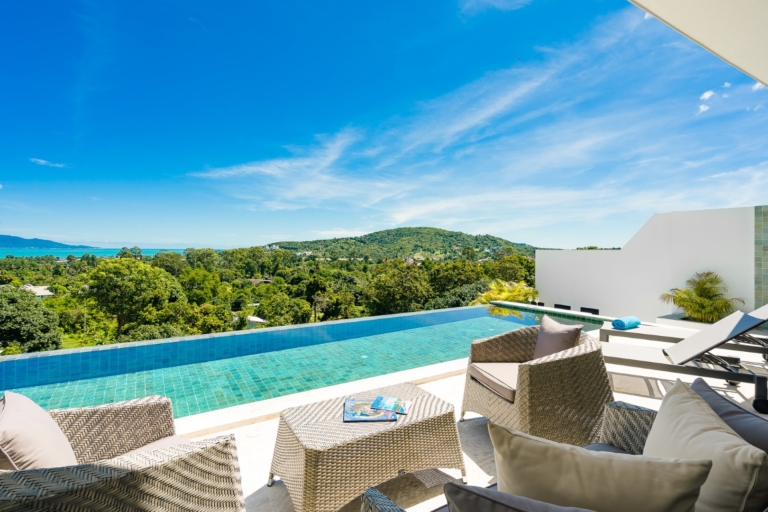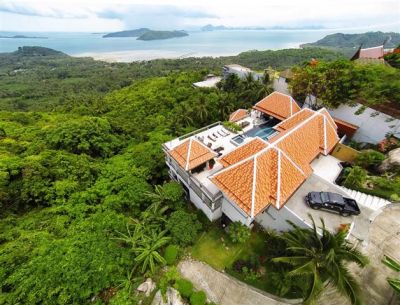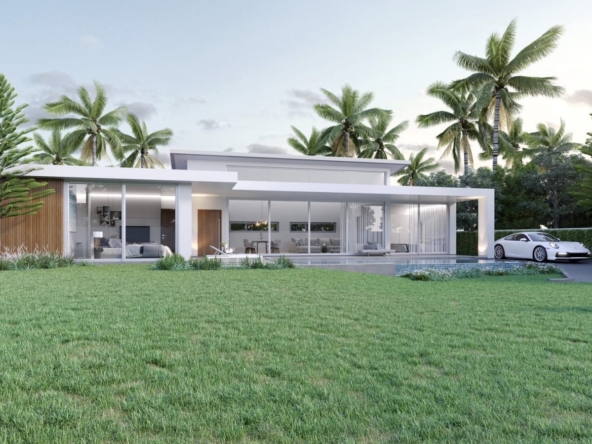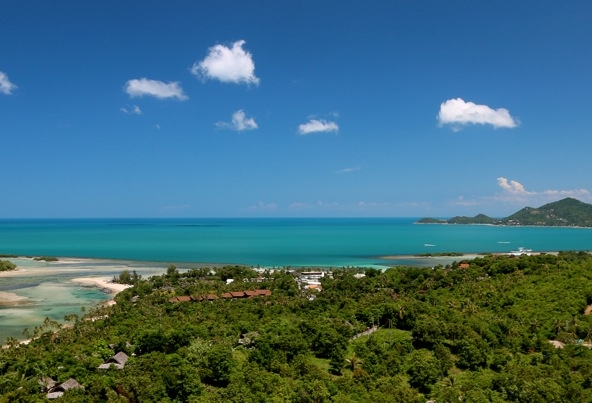Land for sale in Koh Samui, Thailand, is increasingly sought after, particularly within the luxury real estate market. Known for its white sandy beaches, coral reefs, and lush jungle landscapes, Koh Samui is often referred to as “paradise.” As the third-largest island in Thailand, Koh Samui has attracted high-net-worth individuals, developers, and investors due to its rising land prices, appealing build costs, and high-end property developments.
This guide delves into the luxury property market in Koh Samui, offering insights into land prices, prime locations, building costs, and what makes the island an appealing destination for affluent buyers. Whether you’re looking to invest in a tropical retreat or a strategic property investment, this comprehensive resource will provide the information you need to make an informed decision.
The Rising Demand for Luxury Land in Koh Samui
The Thailand Treasury Department has recently revealed government estimates indicating a significant rise in land prices in Koh Samui. As of the latest assessment period, the overall increase in land value has been a substantial 85.79 percent, compared to a national average increase of 26.9 percent. This dramatic rise highlights the growing demand and investment potential of Koh Samui’s real estate market.
Koh Samui Land Valuations
Khun Puntip Surathin, the Director General of the Thailand Treasury Department, announced that the land valuations for Koh Samui are crucial for tax calculations. These valuations are reviewed every four years and cover over 5 million plots in Bangkok and more than 3 million plots nationwide. The valuations consider various factors, including the land’s current use, the local environment, and prevailing economic conditions.
Land Cost Rises on Koh Samui
In stark contrast to the modest 6 percent increase in Bangkok’s land prices, Koh Samui has seen a more pronounced hike. For example, land prices in Bangkok vary significantly, from Bt 260 per square wah in Nong Chok to Bt 650,000 near Silom Road. Meanwhile, the land for sale in Koh Samui has shown consistent value increases, reflecting its growing attractiveness to investors.
Land Prices Increase in Other Regions
Land prices have also risen in other parts of Thailand, such as Hat Yai in Songkhla province, where land is valued at Bt 400,000 per square wah. The Northeastern province of Issan has experienced a price hike of 22.97 percent, with a square wah in Khon Kaen’s Muang district costing Bt 200,000. In Chiang Mai, the average land price increase is 15.43 percent, with Muang district’s land valued at Bt 250,000 per square wah.
Land Price Variations Across Thailand
In the Central Eastern region, land prices in Koh Samui have risen by 11.71 percent, with the highest nationwide price increase recorded in Samut Prakan’s Muang district at Bt 140,000 per square wah. This variation highlights the diverse real estate landscape within individual regions.
Exploring Koh Samui’s Prime Luxury Locations
Koh Samui offers a diverse range of locations that cater to luxury buyers, from bustling tourist hubs to tranquil, secluded retreats. Here are some of the key areas that stand out for their premium appeal:
Nathon: The Administrative Hub
On the west coast lies Nathon, the main town and administrative center of Koh Samui. Nathon is the primary port for ferries to the mainland and hosts all major regional and government establishments, including immigration offices and the main police station. Despite its administrative importance, Nathon remains relatively quiet and less commercialized compared to the island’s more tourist-centric areas.
Chewang: The Tourist Hotspot
Chewang, located on the east coast, is the island’s main tourist area, known for its vibrant nightlife and bustling atmosphere. It is virtually opposite Nathon and offers a stark contrast with its lively environment. Cheweng boasts some of the finest beaches on the island, making it a magnet for tourists and investors alike.
Lamai: The Second-Busiest Resort Area
South of Chewang is Lamai, another busy resort area. Lamai offers a more relaxed atmosphere compared to Chewang but still provides a wide range of amenities, including restaurants, bars, and shops. The beach in Lamai is also a major draw, with its clear waters and soft sands.
Choeng Mon: Secluded Yet Accessible
North of Chewang lies Choeng Mon, a quieter beach bay area. Choeng Mon combines relative seclusion with easy access to nightlife and busier locations, making it a popular choice for those seeking a balanced lifestyle.
Northern Beaches and Smaller Towns
The northern part of the island features great beach areas and smaller towns such as Maenam. Maenam offers beautiful beaches but fewer amenities and restaurants compared to other areas.
Southern and Inland Areas
The southern part of Koh Samui is characterized by quieter, unspoiled areas between Lamai and Nathon. Inland areas are mountainous and largely untouched, offering a different kind of natural beauty.
Building Costs and Infrastructure for Luxury Properties
One of the most appealing aspects of investing in Koh Samui is the relatively lower build costs compared to other premium tropical destinations. The cost of building a luxury villa on Koh Samui is about 15-25% lower than in places like Bali or the Maldives, averaging around THB 50,000 per square meter in prime locations.
Koh Samui’s infrastructure has seen significant improvements in recent years, further enhancing its attractiveness to high-end buyers. Upcoming infrastructure projects, such as expanded ferry services and potential airport upgrades, will likely drive land values even higher.
The Legal Landscape for Foreign Investors
Foreigners cannot own land outright in Thailand, but there are options available for luxury buyers. These include:
- Leasing Land: Foreigners can lease land for up to 30 years with renewal options.
- Owning Buildings: Foreigners can own buildings on leased land.
- Thai Company Setup: Setting up a Thai company allows foreigners to hold the land indirectly.
Given the complexities of Thai property law, it is highly recommended that investors work with reputable legal advisors to ensure compliance and secure their investments.
Environmental and Development Considerations
Koh Samui’s tropical climate and geographic features mean that luxury buyers need to consider environmental factors such as flood risks and land stability, particularly for hillside properties. It’s crucial to conduct thorough due diligence before purchasing land, especially in high-end developments where natural beauty and stability are essential for long-term property value.
Investment Potential in Koh Samui
With its growing appeal to affluent buyers, Koh Samui presents a unique investment opportunity in Southeast Asia. Here’s why:
- Rising Land Prices: The island’s luxury market is rapidly appreciating, offering excellent potential for capital gains.
- Affordable Build Costs: Building luxury properties in Koh Samui is cheaper compared to other tropical destinations, allowing investors to develop high-end projects with a lower initial investment.
- Expanding Infrastructure: With continued improvements to roads, utilities, and healthcare, Koh Samui is poised for sustained growth in the luxury real estate market.
- Diverse Market Appeal: From high-end beachfront villas to private hillside estates, Koh Samui offers a range of luxury options catering to diverse buyer preferences.
7 bed Villa Sold Out in South West – HS0408
- ฿30,000,000
- Beds: 7
 yes
yes yes
yes- Villa
3 bed 3 bath Villa Sold Out in Choeng Mon – HS0786
- ฿13,000,000
- Beds: 3
- Baths 3
- Villa
Frequently Asked Questions
1. Where do most expats live in Koh Samui?
Most expats live in the northeastern part of Koh Samui, including areas like Bophut, Bangrak, Plai Laem, Choeng Mon, Chaweng, Chaweng Noi, and Lamai.
2. What is the average income in Koh Samui?
The average annual income in Koh Samui is approximately ฿520,251 (THB).
3. Is Koh Samui overcrowded?
Yes, certain areas like Bophut, Choeng Mon, and Chaweng can be quite busy, but overall, the beaches are less crowded compared to Phuket.
4. How much does it cost to live in Koh Samui?
Living on a budget can cost around $1,500 per month, while living comfortably may cost between $1,950 and $2,400 per month.
5. Can foreigners buy property in Koh Samui?
Foreigners can own condominium units outright but cannot own land directly. Options include leasing land for up to 30 years or setting up a Thai company.
6. What is the land tax rate for property owners in Samui?
The land tax rate is 12.5% of the yearly rental value according to the lease agreement or the annual assessed value, whichever is higher.
7. Are mosquitoes a problem in Koh Samui?
Yes, mosquitoes are prevalent, particularly during the rainy season, and can carry diseases like dengue fever. Precautions include wearing protective clothing and using mosquito repellent.
8. What makes Koh Samui a popular tourist destination?
Koh Samui is known for its stunning beaches, lush waterfalls, vibrant nightlife, and world-class wellness spas.
9. How much does it cost to build a villa in Koh Samui?
Building a villa in prime locations averages around THB 50,000 per square meter, and about THB 40,000 per square meter in less sought-after areas.
10. Where are the most luxurious areas in Koh Samui?
The northeast corner of Koh Samui, which includes places with secluded bays and private islands, is considered the most luxurious.
11. Is it safe to walk in Koh Samui at night?
Generally, it is safe to walk at night, but standard precautions such as staying in well-lit areas and being vigilant are advised.
12. Which areas in Koh Samui are best for different types of stays?
- Nightlife: Chaweng
- Romantic getaway: Lamai Beach
- Budget-friendly: Maenam Beach
- Family-friendly: Bophut
- Luxury stay: Choeng Mon
- Nature retreat: Taling Ngam
13. How do Koh Samui and Phuket compare in terms of liveliness?
Phuket offers a more lively beach scene and bustling nightlife, while Koh Samui is more peaceful with less crowded beaches.
Conclusion
Koh Samui’s real estate market presents a promising investment opportunity with its rising land prices, lower build costs, and diverse areas catering to different preferences. Whether you are looking for a bustling tourist hotspot, a quiet retreat, or a strategic investment, Koh Samui has something to offer. With its tropical charm and growing infrastructure, the island continues to attract investors and tourists alike, making it a prime destination for real estate investment.

